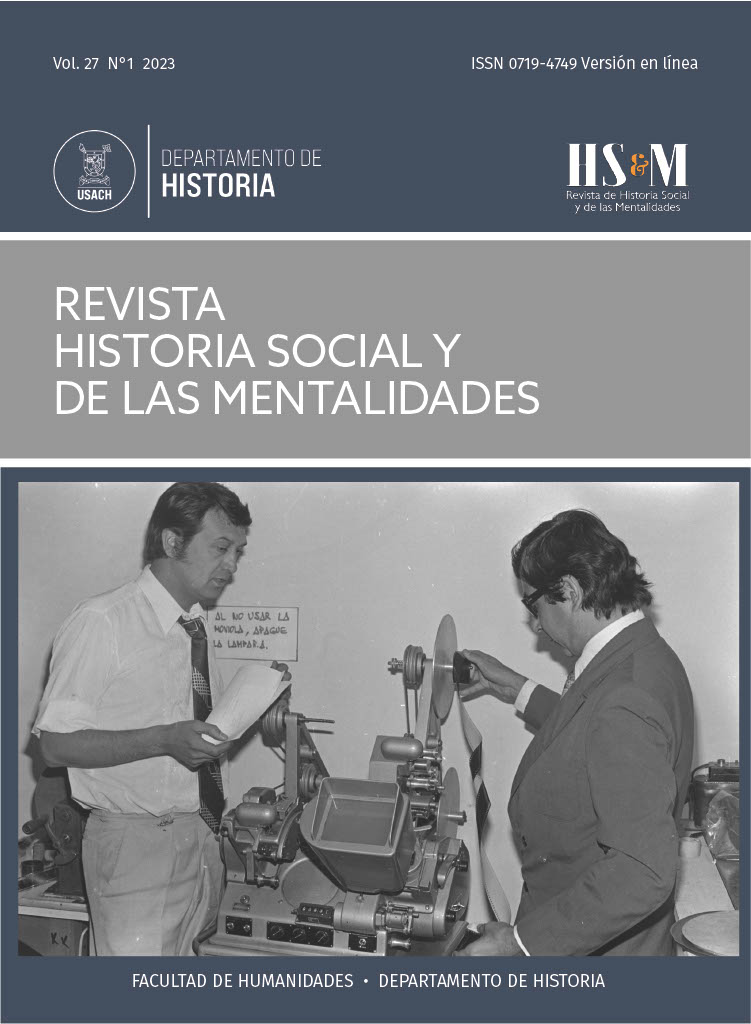Study of the Monasteries of Santiago from the Perspective of the Emotional History. Chile, XVII-XVIII Centuries
DOI:
https://doi.org/10.35588/rhsm.v27i1.5305Keywords:
Monasteries, Women, Daily life, Emotions, Santiago, XVII-XVIII CenturiesAbstract
In recent years, the profuse interest that the inner world of the human being has aroused in the Social Sciences, that is, his emotions, affections, passions, or feelings over time, has become evident. This article analyzes the daily life of the monasteries of Santiago during the colonial period from the theoretical perspective of the history of emotions, specifically from the conceptual approaches of Barbara H. Rosenwein. Using a documentary corpus, very little worked by national historiographies, such as the manuscripts contained in the libraries and convent archives of this city (rules, constitutions, pastoral visits, account books, correspondence, confessional writings and autobiographies); This research gives an account of the main characteristics of the feeling system of these female emotional communities, stipulating, on the one hand, the ecclesiastical regulations that determined the modes of emotional expression allowed and forbidden to the nuns and, on the other, the social and cultural practices that They contributed to transgressing them. It also proposes the existence of emotional sub-communities within the enclosure, established according to the different women who lived there.













